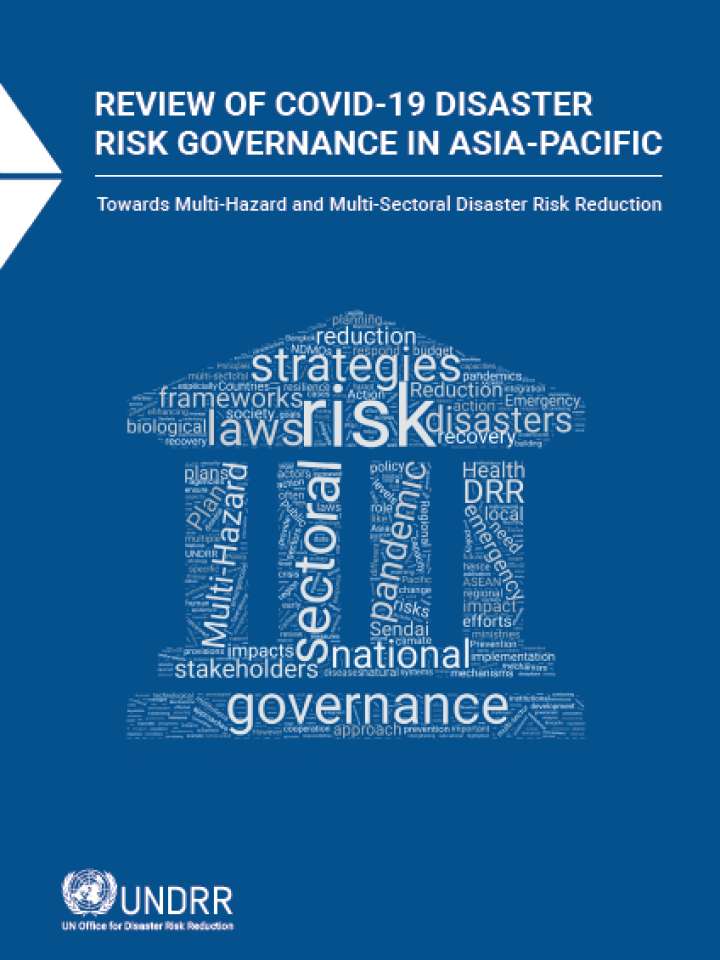Review of COVID-19 disaster risk governance in Asia-Pacific: Towards multi-hazard and multi-sectoral disaster risk reduction
The COVID-19 pandemic is having an unprecedented impact on countries in the Asia- Pacific region. Not only have the health consequences led to over 170,000 deaths in the region, but the socio-economic costs have exceeded those of the Asian financial crisis in 1997. The cascading impacts of this health emergency have affected every sector, with the poorest and most vulnerable bearing the brunt, especially migrants, informal workers, and older persons. The far-reaching impact has underscored the need for countries to review how they manage disaster risk, demonstrating again the importance of multi-hazard and multi-sector approaches.
While many countries have made advances in identifying certain types of hazards, few have systematically considered the full range of hazards that threaten the lives and livelihoods of their people.
Countries are prone to several types of hazards, and effective risk reduction is only possible if all relevant threats are considered and mitigated against. A multihazard approach allows for the prioritization of hazards for mitigation action, and thus, more efficient use of resources.
Moreover, as disaster risks span multiple sectors and levels and are largely inter-connected, this means that multi-sectoral, multi-stakeholder approaches are needed to bring together all the relevant expertise, tools and actors to reduce risks. Multi-sectoral cooperation is especially important when considering that no one agency or ministry has the resources, mandate or ability to address all aspects of disaster risk. In the context of COVID-19, this was seen in the case of the interagency coordination bodies that were formed to help prevent and manage the pandemic.
This paper examines the disaster risk governance structures in Asia-Pacific and provides recommendations on how they can be strengthened.
The guiding documents of 28 countries were reviewed against a list of questions around how they integrate biological hazards and the health sector into their priorities and plans. This initial review was further substantiated through key informant interviews with the national disaster (risk) management offices of 17 countries. Additional information, especially on working practices on coordination between national disaster (risk) management organizations and health authorities, was derived from discussions with relevant disaster risk reduction entities in-country.
Explore further
